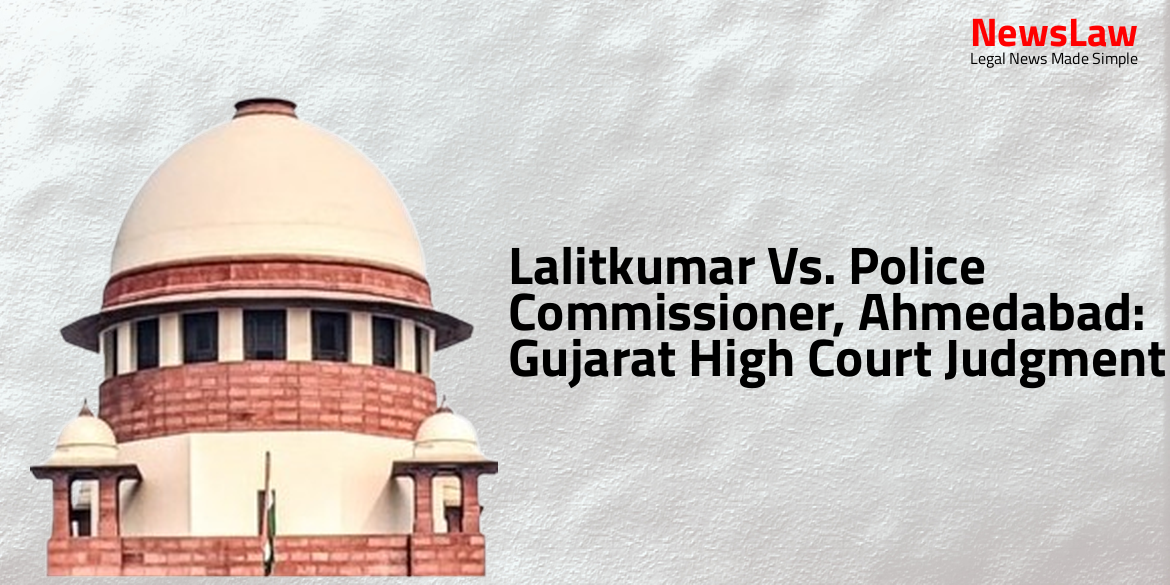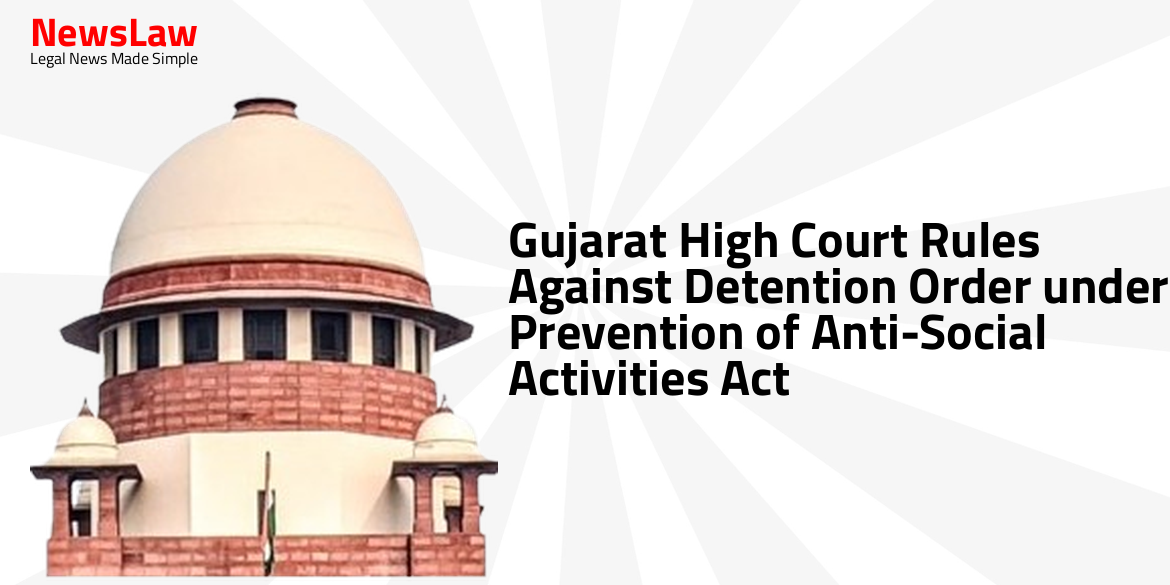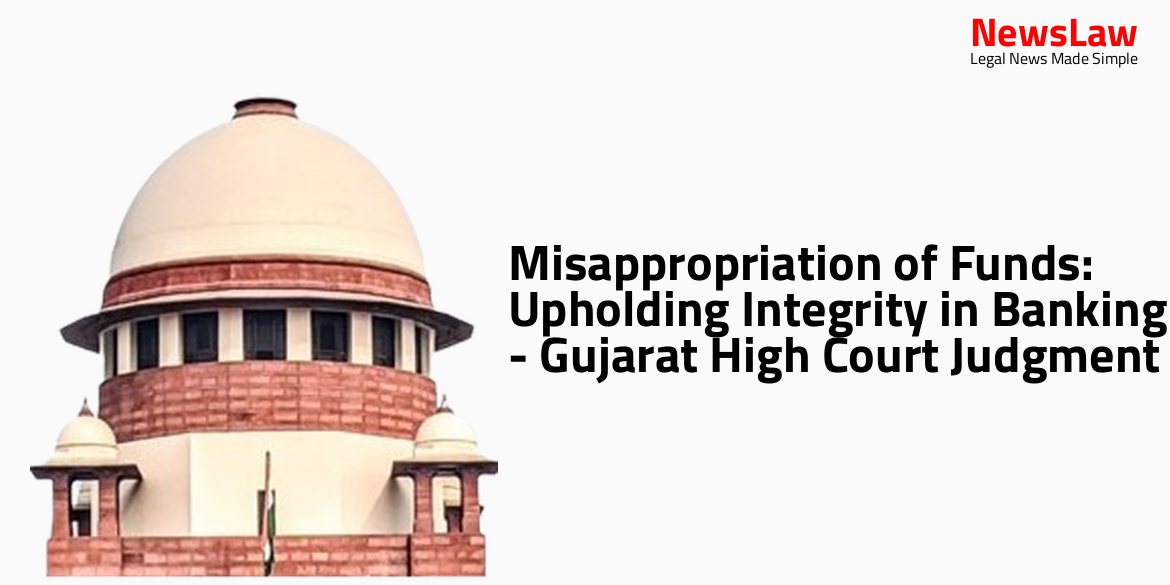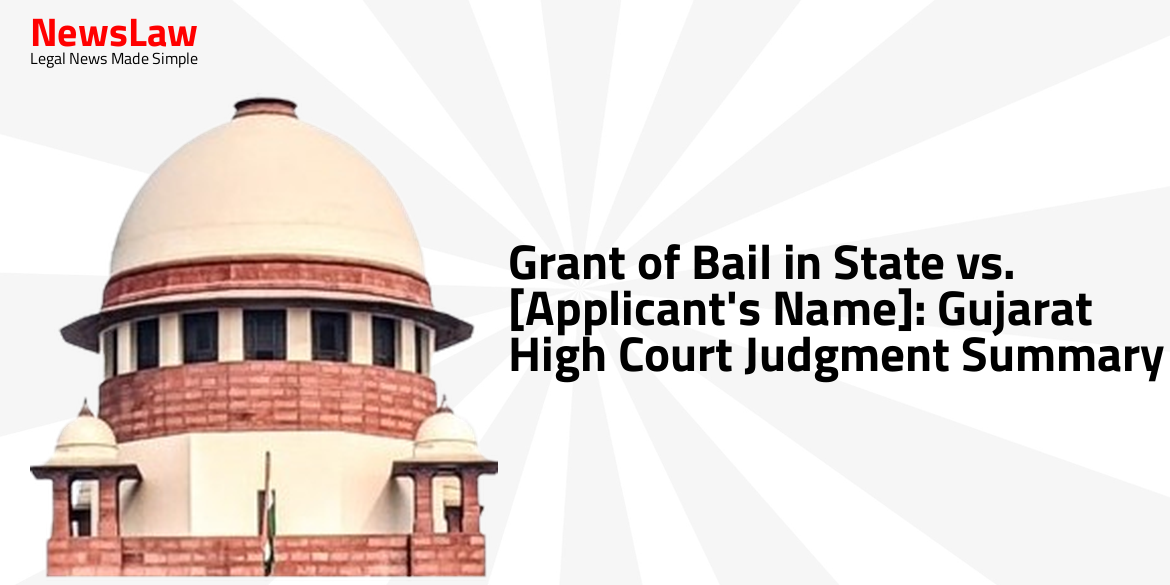A significant verdict by the Gujarat High Court in the case of Lalitkumar Vs. Police Commissioner, Ahmedabad has been delivered concerning preventive detention under the Gujarat Prevention of Anti-social Activities Act, 1985. The judgment examines the legality of the detention order against Lalitkumar and emphasizes the distinction between ‘law and order’ and ‘public order’. The decision sheds light on the necessity to demonstrate a clear impact on public order for preventive detention to be justified.
Facts
- Lalitkumar @ Lallu Dhulaji @ Dhuliya @ Dhula Nathuji Mina was preventively detained under the Gujarat Prevention of Anti-social Activities Act, 1985.
- The detention order was passed by the Police Commissioner, Ahmedabad, labeling Lalitkumar as a ‘dangerous person’.
- The petitioner has challenged the legality and validity of the detention order.
- The petition focuses on the application and interpretation of the Act of 1985 in the case of Lalitkumar.
Issue
- The issue at hand is whether the order of detention passed by the Detaining Authority under the Act of 1985 is legally valid.
- The petitioner is currently in Jail as a result of the executed order of detention.
- The facts and submissions of both parties have been carefully considered to determine the legality of the detention order.
Arguments
- The learned advocate for the detenue argues that the grounds of detention have no connection to public order but strictly relate to law and order.
- The registration of the offenses is not deemed to have adversely affected or likely to affect the maintenance of public order as per the explanation in Section 3 of the Act, 1985.
- The alleged offenses by the detenue are claimed to have no impact on public order, only on law and order.
- The learned State Counsel argues that the detenue is a habitual offender whose activities affect society at large.
- The Detaining Authority issued the order to prevent the detenue from engaging in any activities prejudicial to the maintenance of public order in Ahmedabad.
Analysis
- The petitioner, although a bootlegger, has been granted bail in previous offences.
- The criminal cases mentioned in the grounds of detention do not indicate a threat to public order.
- The petitioner’s actions did not cause insecurity, panic, or terror in the community.
- While the petitioner may be punished for the alleged offences, they did not disrupt the community’s normal life.
- After considering the offences and allegations, it is deemed they did not impact public order.
- Mere disturbance of law and order is not sufficient for action under the Preventive Detention Act.
- The alleged anti-social activities of the petitioner do not adversely affect public order.
- Incidents of beating by the petitioner were mentioned but do not constitute a threat to public order.
- Reference to the case of Pushkar Mukherjee Vs. State of Bengal, where it was established that mere disturbance of law and order is not grounds for preventive detention.
- Contravention of any law must affect the community at large to be considered as impacting public order.
- The authority wrongly concluded based on two criminal cases that the petitioner’s activities are prejudicial to public order.
- Offenses committed by the detenue do not have any bearing on the maintenance of public order.
- Citing the case of Piyush Kantilal Mehta Vs. Commissioner of Police, Ahmedabad, where the detention order based on prohibition offenses did not lead to public disorder.
- Drawing a distinction between ‘law and order’ and ‘public order’ as highlighted in the case of Pushkar Mukherjee v. State of West Bengal.
- The need to differentiate between serious forms of disorder affecting the community and minor breaches of peace primarily injuring specific individuals.
- Preventive detention under the Act is not permissible unless the individual’s activities as a bootlegger impact or are likely to impact public order.
- Preventive detention can only be carried out as specified in sub-section (4) of section 3 of the Act.
- The impact on public order must be clearly established before preventive detention can be justified.
- The material on record is insufficient to prove the alleged activities of the detenue adversely affects public order.
- The subjective satisfaction of the detaining authority is not legal or valid.
- The order of detention cannot be upheld.
Decision
- Detenue directed to be set at liberty forthwith if not required in any other case.
- Direct service permitted.
- Rule made absolute accordingly.
- Order dated 30.12.2023 passed by the respondent authority quashed.
- Petition allowed.
Case Title: LALITKUMAR @LALLU DHULAJI @DHULIYA @DHULA NATHUJI MINA Vs. COMMISSIONER OF POLICE
Case Number: R/SCA/2275/2024



